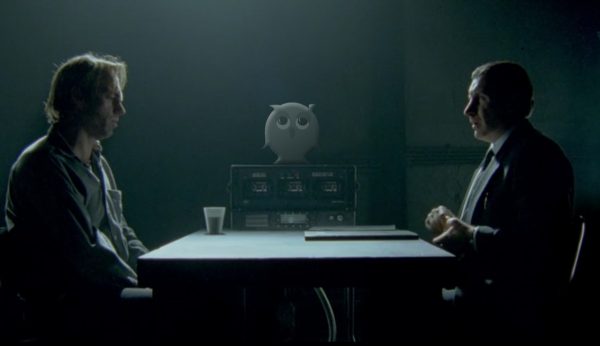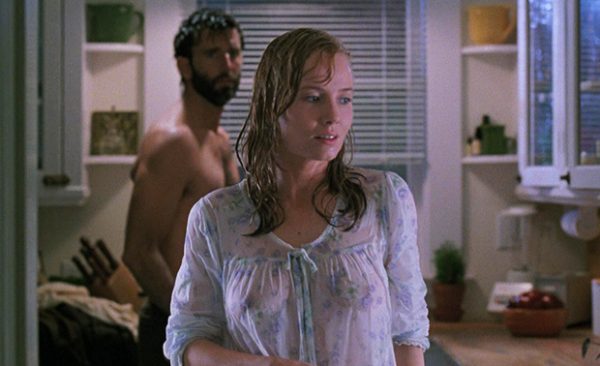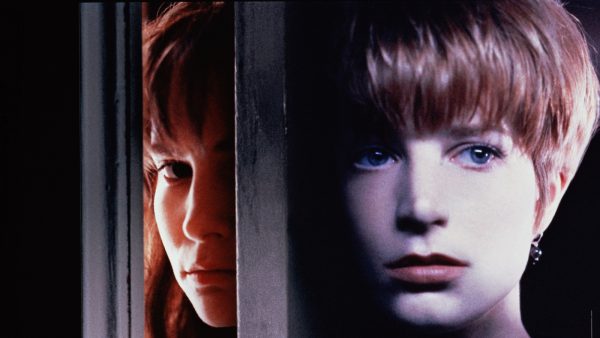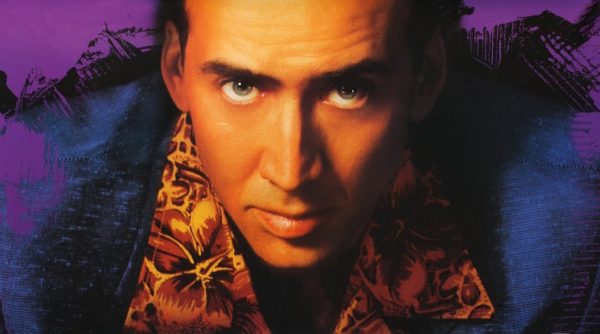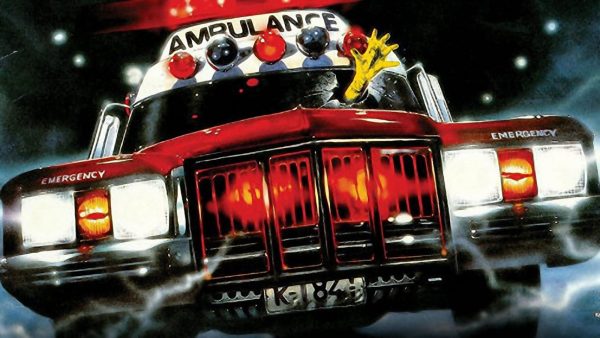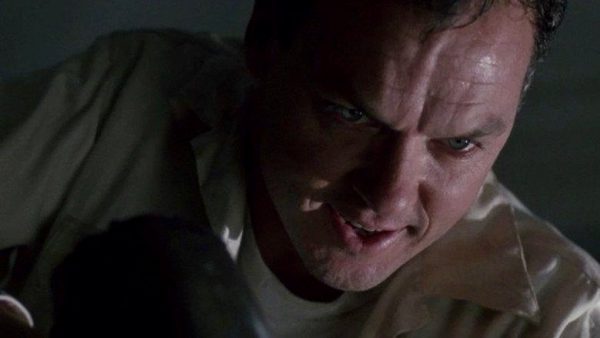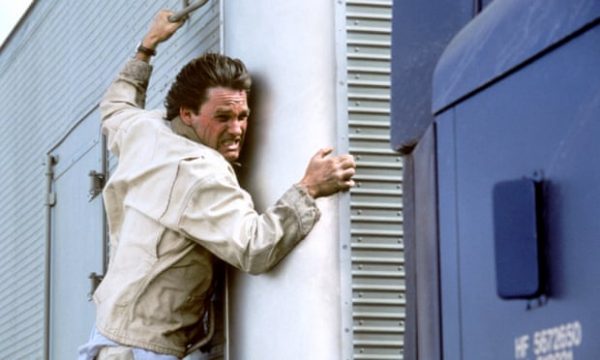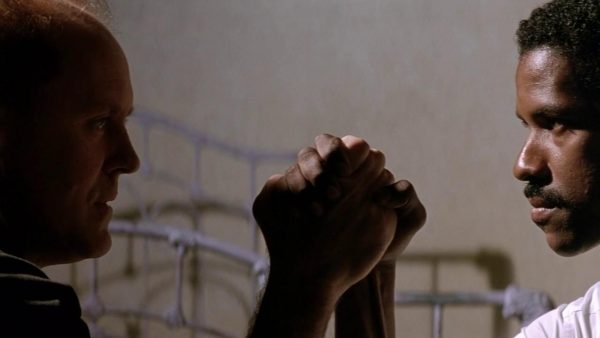Tom Jolliffe offers up a selection of essential forgotten 90s thrillers…
The 90s was a veritable treasure trove of thrillers. A decade prior, which saw a more growing fascination in the rising blockbuster, as well as other genre cinema, saw your classic pot boiler thriller pushed slightly to the wayside. Not so much a throwback to the full on intensity of 1968-1977 American cinema, a new wave in the 90s, replete with obsessive stalkers, relentless serial killers, or femme fatales saw a number of great films in the genre come and become iconic, and often a distinct callback to Hitchcock-inspired stories.
You had Basic Instinct, Seven, The Usual Suspects, Primal Fear, Fight Club and more. A veritable mix of thrillers with different tones. Psychologically complex in some cases and very of their time in others (Fight Club is pure 90s, but in such a way as it hasn’t dated). Among this hefty output there have been a number of films which were underrated at the time, and/or have become a little unfairly forgotten. Here are 10 great forgotten thrillers from the 1990s…
Blue Steel
Kathryn Bigelow has plenty of cult classic films under her belt from her early career. In their own respective ways, The Loveless, Near Dark, Point Break and Strange Days have their own unique qualities which has seen them retain (and further attain) a cult following. Within this impressive output of genre films, before Bigelow went full Award season heavy hitter with The Hurt Locker, we have Blue Steel an underrated thriller about obsession from 1990.
Filled with all the style you’d expect from Bigelow as a visual storyteller, Blue Steel also offers a great platform for Jamie Lee Curtis to play a strong, sexually assured character, pushing to succeed in a male dominated police force. Ron Silver, is the wall street trader who picks up a gun from a crime scene (after JLC’s Megan, shoots an armed robber), which puts her in a heap of trouble. Meanwhile he is increasingly allured and fascinated by not only the gun and its inherent power, but also by her.
Blue Steel is an interesting concept that might descend into a very 90’s kind of histrionics, but combined with Bigelow’s verve, there’s a certain pulpy quality to this and a certain female gaze that imbues (like many of Bigelow’s films) this very masculine genre film with a unique feel. Curtis is great and Ron Silver was always such an underrated villain, even if he descends into a tribalistically roaring maniac by the film’s end.
The Interview
Not particularly well known outside of its native Australia, The Interview is a gripping Hitchcockian/Welles-ian thriller set largely within the confides of a police station (and particularly focused on an interview room). It’s a cat and mouse game between suspect and law as both play mind games with the other. Lines of innocence and guilt become blurred as the detectives chase a result by hook or by crook.
Our suspect, is brilliantly played by a pre-Matrix Hugo Weaving. Much of what we know is from his perspective and he becomes an unreliable narrator. The film is brilliantly paced and definitely worth going in as blind as possible as the increasingly complex events are uncovered.
The Hand that Rocks the Cradle
Coming in the wake of Fatal Attraction, this was one of an almost relentless slew of obsessive character thrillers. This proved a hit and a very popular film at the time. Directed with ruthless aplomb by Curtis Hanson (L.A Confidential) this is elevated beyond its simple conceit by the craftsmanship and its cast.
Annabella Sciorra and Matt McCoy welcome a young woman into their home to become nanny (Rebecca DeMornay) for their son. She has ulterior motives and so begins her obsessive game to slowly unravel this family unit and destroy them (Sciorra’s character having ‘caused’ the death of the nanny’s husband). Of course Sciorra suspects this and is ignored, but the film progresses nicely until the more over the top theatrics of the final third. De Mornay in particular, is superb. In an odd way though it almost seemed to be counterproductive for her career henceforth.
Single White Female
Another tale of obsession, as a young woman’s (Bridget Fonda) new roommate (Jennifer Jason Leigh) becomes increasingly enamoured by her and slowly begins to infiltrate her life. It’s certainly driven by a Hitchcockian sensibility with complex character interplay in confined surroundings. The film, very much of its time, is made all the more interesting by the performance of Jennifer Jason Leigh, one of the most underrated stars of her generation (you know that, when it takes Tarantino to pull you back into the limelight).
Like many similarly veined films of the era, it pushes logic toward the end and gets very theatrical, but that is also part of what makes these films, still so enjoyable to watch. Director Barbet Schroeder, with a directorial lineage of interesting character pieces (Barfly), certainly injects this with some psychological complexities.
Snake Eyes
Take a legendary director like Brian De Palma, renowned for his grandiose visual style. Then take a star (Nic Cage), known for just as grandiose an approach to the craft of acting. At the time Nic Cage was peaking as a box office star and a newly established star of action blockbusters. De Palma was somewhat on the way down, coming off the back of helming a popular adaptation of an old 60’s TV show, Mission Impossible. If that seemed to suggest that De Palma was in danger of becoming gun for hire, over auteur, Snake Eyes felt like (for better and worse) a once heavy hitting powerhouse was exercising the full extent of his visual whimsy.
Snake Eyes certainly isn’t near the top of De Palma’s CV, but it’s the last big pulpy shlocker of his CV. Critically derided upon release, the film has picked up a little more appreciation in years since. For one, it’s a technical marvel with the film opening on a lengthy unbroken take up to the inciting incident of the piece (where a government official is shot whilst attending a boxing match in Vegas). That opening also happens to follow around Nic Cage’s rogue Vegas cop and as only he can, Cage revels in hogging the unbroken take and leading the steadi-op on a merry journey throughout the large arena (guts and all). Once we get back to De Palma’s bread and butter of Hitchcock ode thrills and plot unravelling, things are less spectacular but still gripping. Cage maintains our attention and the aesthetics always dazzle, even if the payoff doesn’t quite land.
The Ambulance
From B movie deity Larry Cohen comes a video hit which may, in a very small way, be an early ‘Marvel’ film. Stan Lee pops up as himself. Eric Roberts leads the film (that sentence in itself gives you some indication of how old this is) as a Marvel comic book artist. After meeting a woman and falling for her, she falls in the street and is taken away in an ambulance. As he tries to catch up to check on her, it becomes apparent she’s disappeared. Our intrepid protagonist finds himself thrust headlong into a mystery with increasingly disturbing findings and danger.
Ambulance is a really underappreciated and rollicking B movie with a great concept and an excellent cast (alongside Roberts is James Earl Jones, Janine Turner and Megan Gallagher). It’s one of Cohen’s best works, if lacking some of the more iconic schlock of his biggest cult hits.
Pacific Heights
Note to anyone who time travels back to the 90’s in America. Don’t let out a room in your apartment. Just don’t. Never ends well. Pacific Heights is a great movie. It never gets talked about enough in the pantheon of great 90’s thrillers. Like Single White Female, a tenant becomes a waking nightmare. Melanie Griffith and Matthew Modine are the aspirational young couple who are weighted down by the financial burden of the house they’ve bought. Michael Keaton is the seemingly normal and polite (if mysterious) tenant who moves in.
First they have issues with him paying then increasing problems with noise and more, as things continue to escalate. Unable to get rid of him, the couple start to consider increasingly desperate solutions to rid themselves of the problem tenant, little realising they’re stoking someone who might just be psychologically imbalanced on top of being a swindler. With rock solid direction from veteran John Schlesinger (albeit past his peak), the film most benefits from Michael Keaton who is able to effortlessly prance between intense, charming, smarmy and likeable with the skill of a royal court juggler.
Breakdown
A real classic of the disappearing person sub-genre. Breakdown starts quiet and cranks up through the gears to a barnstorming finale. Kurt Russell and Kathleen Quinlan breakdown. When she is taken by truck to the nearest gas stop to call for a tow, Russell waits behind at the car. From then on, she is gone. It’s stark dusty American highways. Mile upon mile of nothing and Russell then realises something is amiss when he sees the trucker later on, who denies ever having met him or his wife.
Jonathan Mostow’s tight direction keeps this lithe film taut and exciting. Russell is as ever, an amiable and endearing protagonist and JT Walsh is affably slimy as the villain whose true colours unveil someone much darker than the helpful passer by we first encounter.
Final Analysis
This become one of a number of erotic neo-noir films around the time that just got blown out of the water by Sharon Stone’s leg crossing. Basic Instinct reigned supreme and went on to further inspire a slew of other erotic thrillers like Body of Evidence (as well as swathes more video specials starring Shannon Tweed et al). Final Analysis is one of the better of the era, and somewhat underrated. It’s a little rote, but these films kind of rest on the silly conceits.
Kim Basinger is (as always) great. Richard Gere was increasingly finding himself playing interchangeable versions of very similar characters through this period, and perhaps is a little uninspired. Eric Roberts, as he tended to in the rare occasions he popped up in a studio picture, revels in playing the slime ball villain, not unlike a similar role he’d play again in The Specialist a few years later. This is the very definition of pot-boiler, but it’s an enjoyable one.
Ricochet
Whilst establishing himself as a generational great of the game, Denzel Washington had a curious phase among films like Glory and his frequent Spike Lee joints, where he was starring in high-concept genre fare. Films like Virtuosity felt like Jean-Claude Van Damme cast offs in some ways, but benefited from the effortless gravitas one gets when they cast Denzel Washington.
Ricochet pits Denzel against John Lithgow in a kind of riff on Cape Fear. It might be the low rent cousin, but that doesn’t take anything away from what is a well executed ride that has a great lead, a theatrically villainous John Lithgow and the directorial pizazz of Russell Mulcahy. Whilst Mulcahy could never quite match up to the glorious creative flair of Highlander, he made some underrated 90’s fare that has bared repeat viewing well, not least this (and additionally the increasingly reappraised The Shadow).
SEE ALSO: Forgotten 90s Horrors You Have To See
What are you favourite forgotten 90s thrillers? Let us know on our social channels @FlickeringMyth and check out our FREE Patreon for more exclusive content…
Tom Jolliffe



